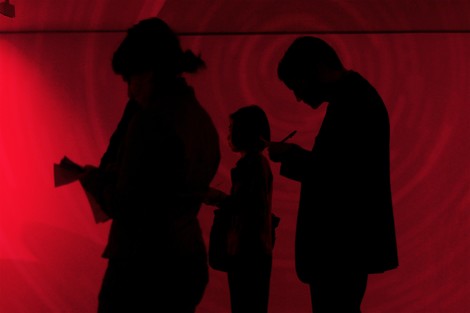Your podcast discovery platform
Curious minds select the most fascinating podcasts from around the world. Discover hand-piqd audio recommendations on your favorite topics.

piqer for: Climate and Environment Globalization and politics
Raksha Kumar is a multimedia journalist focusing on human rights, politics and social injustices. Since 2011, she has reported for The New York Times, BBC, Guardian, TIME, South China Morning Post, Foreign Policy, Scroll.in and The Hindu.
In March 2018, she was awarded the National Foundation for India Media Award for her reportage on land rights in India. In 2017, she was shortlisted for Kurt Schork Memorial Awards in International Journalism. For her work on land conflicts in India, she was awarded the Chameli Devi Award for Outstanding Media Personality in 2016.
As a reporter, her focus areas are land and forest rights of the most vulnerable communities. However, since these issues cannot be looked at in isolation, Raksha found herself increasingly reporting on armed conflict around resource extraction in places like Chhattisgarh and Kashmir.
In 2015, she wrote, shot and directed a documentary film on Rationalists in Contemporary India. It was aired by India's public broadcaster, Doordarshan. The film has been screened in 29 locations across the country until now.
The same year, Raksha was selected as a Chevening Fellow by the University of Westminster to research on Hindu Right in the UK. This helped Raksha build on her post graduate dissertation which was on Hindu Fundamentalists in India.
With a Fulbright Scholarship for Leadership Development, she went to the Columbia University in New York City to pursue a Masters in Science. As a student, she was offered the Scripps Howard Fellowship to report from Israel and the West Bank. Since 2011, Raksha has reported from 11 countries across the world.
Raksha worked as an editor at NDTV, leading English news channel in India. She was the editorial head of a two-hour prime time news show, where she lead a team of about 20 junior journalists.
A graduate of Lady Shri Ram College in New Delhi, Raksha was a dedicated student and a passionate public speaker.
Sexpat Journalists Are Ruining Asia Coverage
Joanna Chiu takes us inside the dirty world of foreign correspondents in China, where sexual exploitation is rampant. In the wake of the Me Too movement, stories such as Chiu's become important because:
Such actions, and entitlement, reflect a sense of privilege and a penchant for sexual aggression that threatens to distort the stories told about Asia, and that too often leaves the telling in the hands of the same men preying on their colleagues.
As discerning consumers of news media, it becomes important for us to know who is giving us our news. If a sexual aggressor is the newsman, then how coloured would his coverage of sexual violence be? Chiu explains:
I have seen correspondents I know to be serial offenders in private take the lead role in reporting on the sufferings of Asian women, or boast of their bravery in covering human rights. In too many stories, Asian men are treated as the sole meaningful actors, while Asian women are reduced to sex objects or victims. And this bad behavior — and the bad coverage that follows — is a pattern that repeats across Asia, from Tokyo to Phnom Penh.
Bad sexual behaviour by expatriates earns them the term "sexpats". Often the worst damage is done by men ensconced in positions of influence in journalism, diplomacy, and international business, Chiu says.
